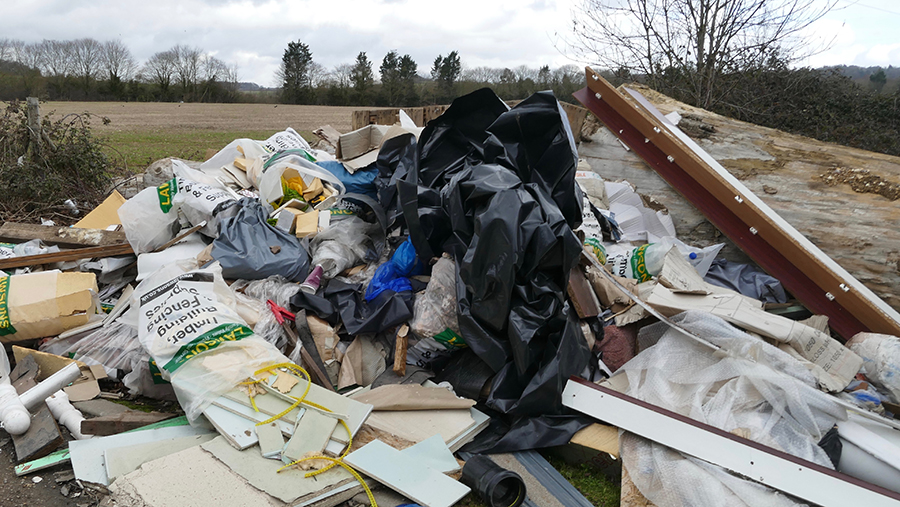Criminal gangs behind rise in large-scale fly-tipping
 © Geoffrey Swaine/Shutterstock
© Geoffrey Swaine/Shutterstock Organised criminal gangs are being blamed for a large rise in major fly-tipping incidents.
An investigation by the BBC Shared Data Unit has found that large-scale fly-tipping – defined as tipper lorry load size or more – has more than doubled in the last six years.
Since 2012, there has been a 112% rise across the country in the largest tips, the researchers found.
See also: What to do if you’re a victim of… fly-tipping
Clean-up costs are hitting taxpayers in the pocket – councils in England and Wales have spent more than £59m in the past six years cleaning up fly-tipped waste.
Last year, local authorities spent £12.8m on clearing more than 36,200 large tips, which accounted for more than a fifth of the overall cost of clearing fly-tips.
‘Nightmare’ situation – NFU
The NFU told the BBC that the new figures highlighted a “nightmare” situation that continued to “spiral out of control”. It said people generally associate fly-tipping with the dumping of the odd sofa, but now in the countryside it has grown into large-scale crime.
Criminals were using lock-cutting tools to break into private land and tip vast quantities of waste that can cost hundreds of thousands of pounds to clear, the union said.
Bogus waste companies also try to rent buildings or land and dump lorry loads of rubbish.
The Country, Land and Business Association (CLA) said the introduction of fees at many recycling centres had brought about the rise of organised criminal fly-tipping.
Julia Mulligan, chair of the National Rural Crime Network, said: “Fly-tipping is a scourge on rural communities and is growing in both scale and severity.
“We also know from our research that fly-tipping is significantly underreported – by up to 75% – mostly because very little, if any, support is given to private land owners to deal with the problem.
“For too long fly-tipping has been at the bottom of the political agenda, with responsibility falling between too many agencies, and communities suffering repeatedly as a result. Having almost 60% of rural people seeing fly-tipping within the past year is totally unacceptable.”
Ms Mulligan added that failing to deal with offenders adequately was having “knock-on consequences”.
Offenders let off lightly
Fly-tipping is a criminal offence punishable by a fine of up to £50,000 or 12 months’ imprisonment if convicted in a magistrates’ court, or an unlimited fine and up to five years’ jail if the case goes to trial.
But offenders often receive only small fines of a few hundred pounds.
The Environment Agency is responsible for clearing large-scale dumping (more than 20 tonnes) from public land, but the cost of clearance lies with the local authority.
As the law stands, landowners are responsible for clearing waste dumped on their land. CLA Insurance and Farmers Weekly has campaigned for the government to change thie law through our joint campaign Stop the Blot.
But so far, Defra and the UK government have failed to take action.
Link to organised crime
Earlier this year, Environment Agency chief executive Sir James Bevan said organised crime gangs linked to slavery, drugs and firearms were exploiting the waste industry in massive fraud and fly-tipping schemes.
A Defra spokesman said: “Fly-tipping blights communities and poses a risk to human health and the environment.
“It also undermines legitimate waste businesses where unscrupulous operators undercut those operating within the law. Waste crime is becoming more organised, involving networks of career criminals, and tackling this type of illegal activity is more complex.”
The spokesman added: “The Environment Agency is responsible for tackling large-scale illegal dumping incidents and is determined to make life hard for criminals by disrupting and stopping illegal activity through tough enforcement action and prosecution.
“We continue to use intelligence to target the most serious crimes.”
